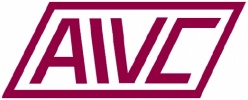In this webinar, we addressed the opportunities to use novel materials (from advanced functional nano-materials to bio-based building materials) as building components to actively/passively manage the IAQ, for example, through active paint, wallboards, and textiles coated with advanced sorbents or catalysts and quantify their potential, based on the assessment framework developed in the IEA EBC Annex 86 “Energy Efficient Indoor Air Quality Management in Residential Buildings”.
This webinar was organized by the Air Infiltration and Ventilation Centre & the IEA EBC Annex 86 “Energy Efficient Indoor Air Quality Management in Residential Buildings” (https://annex86.iea-ebc.org/). The webinar was facilitated by INIVE (http://www.inive.org/).
AGENDA (Brussels time)
- 14:00 | Introduction, Menghao Qin, Leader of ST3, IEA EBC Annex 86 – Technical University of Denmark (DTU), Denmark | Slides, Recordings
- 14:10 | Metal-organic Frameworks for indoor environment control, Menghao Qin – DTU, Denmark | Slides
- 14:30 | Passive Removal Materials for Indoor Air Improvement: Performance Evaluation and Modeling, Doyun Won and Mitra Bahri – NRC, Canada | Slides, Recordings
- 14:50 | Electrospun fibers for Supply Air Filtration in residential buildings, Alireza Afshari – Aalborg University, Denmark | Slides, Recordings
- 15:10 | Impact of VOC and moisture buffering capacities of bio-based building materials on IAQ and indoor RH: the case of hemp concrete, Anh Dung TRAN LE – University of Picardie Jules Verne (UPJV), France | Slides, Recordings
- 15:30 | Questions and Answers, Jensen Zhang, Co-Leader of ST3, IEA EBC Annex 86 – Syracuse University, USA | Recordings
- 15:45 | Closing & End of webinar
For further information please scroll down to download the flyer and slides and view the recordings.





